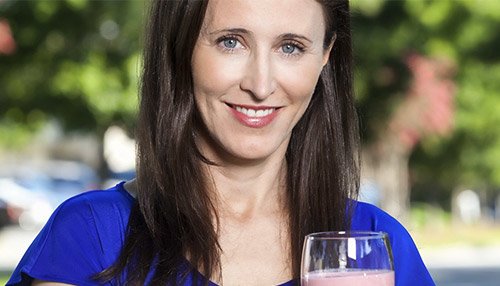
What Does “Eating Clean” Really Mean?
The most popular term for improving your nutrition is unfortunately also the most confusing. Let's pull back the "clean" curtain and see what really works for fat loss!
Confession time: I'm a dietician, and I hate the term "eating clean." That's right, hate. Though this particular turn of phrase has been around for decades, it has catapulted in recent years, thanks to an ever-more-vocal community of fitness enthusiasts who stick their noses high in the air while preaching a million different—and often conflicting—definitions. You wouldn't think two words could have so many definitions, but "eating clean" is persistent to the point of being unkillable.
Why does it bother me so much? Despite its popularity among countless magazines, cookbooks, blogs, diet plans, and best-sellers, there's no universal definition for "clean." I never know what people mean when they say it, nor do I know what's on their plate or how effective their approach is going to be for their goals.
Of course, not every definition or variation of the word "clean" is useless. Some have real value, while others probably only work for people with certain goals. Let's look at the most popular advice surrounding clean eating and what you should—or shouldn't—take away from each.
Advice: If it's "processed," it's not clean
Score: Useless
Put another way, this popular advice means that if something comes in a package or was bought in the nefarious "middle aisles" of the grocery store, you should pretend you're a true paleo hunter-gatherer being chased by a mountain lion and run fast and far! The majority of the clean-eating crew won't hesitate to slap your wrist if you dare reach for anything that comes in a box, bag, or can—unless it's the flimsy plastic produce bag you get in the grocery store. And even then, they may inquire why you didn't bring your own bag.
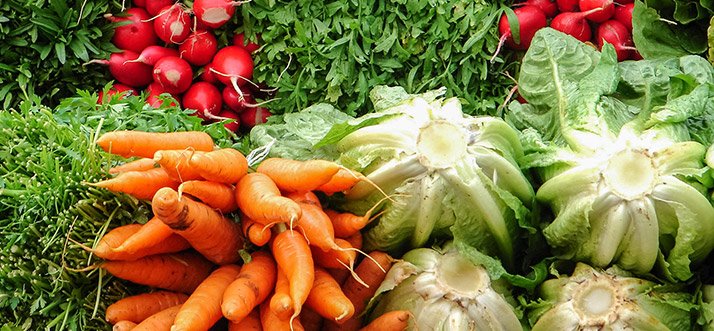
As I've written before, trying to eliminate processed foods entirely is unsustainable unless you live on a self-sustaining farm or follow a true paleo diet by hunting, gathering, and preparing your own food. The other 99.99 percent of us who aren't tending to our broccoli plants daily or chasing after wild turkeys are eating processed foods.
Some people call this eating "real" food or trying to be "as close to nature as possible." They'll even insist on only eating things that are "seasonal," as if decades—OK, hundreds of years—of strategic plant breeding haven't made these terms meaningless.
What many consider "real," I consider a real pain. When it's winter, I'm cold, and I want soup. In case you're wondering, no, I don't always think ahead of time and buy all of the ingredients needed to make soup and soak the beans overnight. If I followed this clean-eating principle, canned or boxed soup would be off-limits; on days when I didn't feel like chopping, prepping, and waiting for my meal, I'd have two options:
- Go hungry.
- Eat something that doesn't sound as good and doesn't taste as good, but is somehow more "healthy" and meets my self-imposed restrictions.
I've said it often, but it's worth repeating: Processing often improves the safety of our food supply and increases the bioavailability of some nutrients and antioxidants. It also provides us with the ability to quickly and easily whip up all of those delicious-looking recipes seen on Pinterest or Instagram.
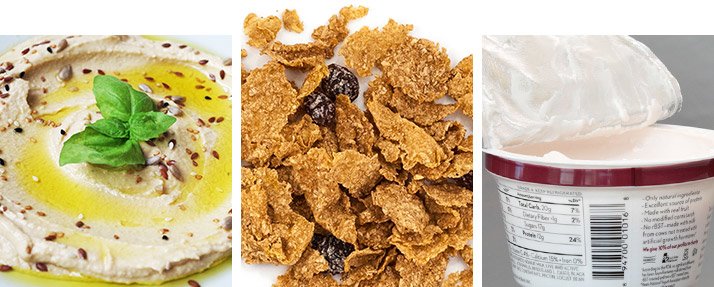
Plus, there are more examples of healthy processed foods than I can count: hummus, no-added-sugar tomato sauce, whole-grain cereal, and Greek yogurt are a few among thousands. Sorry, they're not making you fat.
Nutrition is complex, and sometimes I wish we could boil it down to wiping out entire categories of food, but doing so is a major disservice to your time, wallet, and taste buds.
Advice: Choose unrefined over refined grains
Score: Good
Whole grains are important sources of fiber and naturally contain B vitamins that are often added back to refined grains. Refined grains lose up to 20 different nutrients, only to have many, but not all, added back after processing. A caveat: many gluten-free grains do not add back these nutrients, but they're rich in others. So this advice won't harm you and may help.
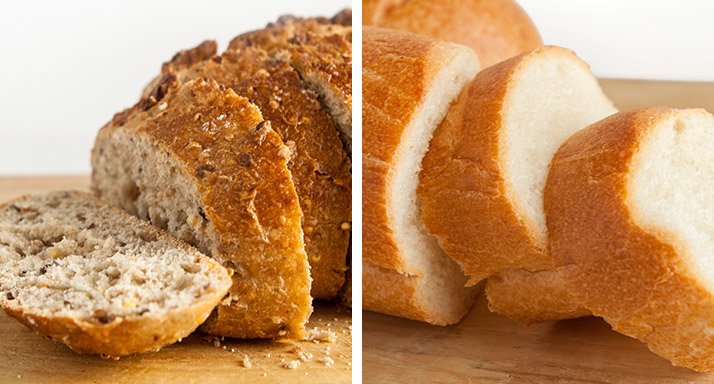
Advice: Eat five or six small meals each day for fat loss
Score: Bad
For many years, people assumed—and many nutritionists preached—that eating several small meals each day would "fire up their metabolism" and decrease the chances of reaching for the vending machine.
The truth: there is no difference in calories burned if you eat a few bigger meals each day or several small meals. If the short-term research suggesting we need a certain amount of protein at each meal (25-30 grams or more) to maximally stimulate muscle building and repair holds true over a longer period of time, eating 3-4 meals per day may make it easier to incorporate these recommendations versus eating bite-size meals several times a day.1,2
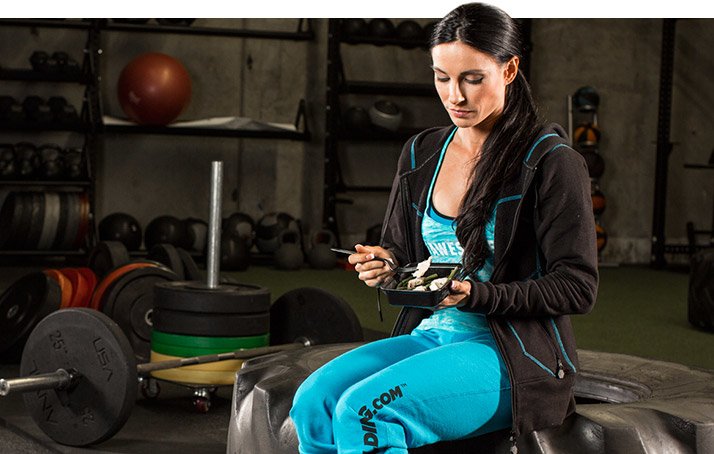
So why doesn't this one get the "useless" label? Because there is a use for the frequent-meal approach: cramming more meals into the day for someone trying to gain weight. But do it for the right reasons! Eating five 500-calorie meals rather than three 600-calorie meals a day gives you almost 1,000 extra calories, as well as more protein, carbs, and fats. But don't trick yourself into thinking that you're doing it for your "metabolism."
Advice: Eat every macro at every meal
Score: Bad
Some people will phrase this one as "eat protein and carbs at every meal," whereas others will include fat in that lineup as well.
Short-term research tells us that it is important for adults to consume at least 25-30 grams of protein at each meal to keep and build muscle tissue.1,2 So if building muscle is your goal, by all means prioritize protein. Fat is also necessary for optimal absorption of fat-soluble vitamins and certain antioxidants. For this reason, it is usually a good idea to have some fat when you are taking a multivitamin, fat-soluble vitamins such as vitamin D, or eating a big, green, leafy salad. Plus, we know certain high-fiber carbohydrates keep the bacteria in our gut (and therefore our gut as a whole) healthy and prevent constipation.
So, if you want to include all three macronutrients at a meal, go ahead. However, it isn't always essential to scurry around looking for your unprocessed edible whole grains (good luck) or olives to complete your meal. A protein shake alone is an acceptable meal sometimes. So are some simple dressed greens, or a piece of fruit, or a handful of olives, or a couple pieces of cheese.
This isn't a science experiment, people. It's your life.
Advice: Cut down or eliminate added sugars
Score: Good
Some people will expand this warning to avoid fat, salt, and sugar, but I'll spare you the full rant about why this is an outdated way of thinking.
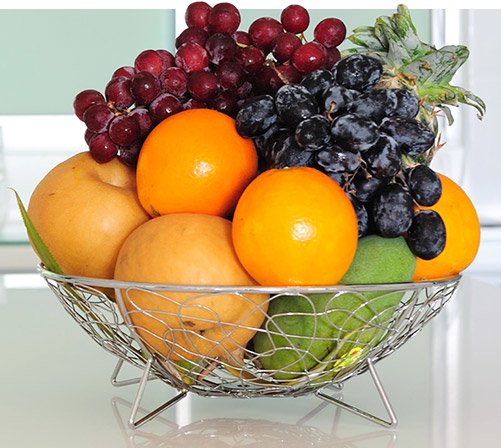
Foods with added sugars are basically useless for nonathletes—and in my book, gym-goers who aren't preparing for competition don't count as athletes. Sorry! Sugars that are added to foods to make them taste better—as opposed to naturally occurring sugars in fruits—just add calories with no real nutrition value.
How much of a difference can this simple choice make? A recently published study from Cornell University looked at what foods were on the counters of 500 houses in Syracuse, New York, and the body composition of the occupants.3 Those with breakfast cereals weighed 20 pounds more than their neighbors who didn't. Soft drinks? 24-26 pounds more. Those who had a fruit bowl, on the other hand, weighed 13 pounds less than their neighbors.
Is there a time and a place for a pastry? For many of us, yes. But if you're looking for something to "clean up," this advice is often the best place to start. And it starts at home.
It's time to clean up "clean"
Ask a few registered dietitians, personal trainers, or health coaches what "clean eating" means, and you will likely get as many responses as the number of people you asked. They may share some core concepts, but unless someone is being a smart aleck, you probably won't hear anything that has to do with actual "clean" food—i.e., food contamination or decreasing risk of food-borne pathogens, both of which are far more important than people give them credit for.
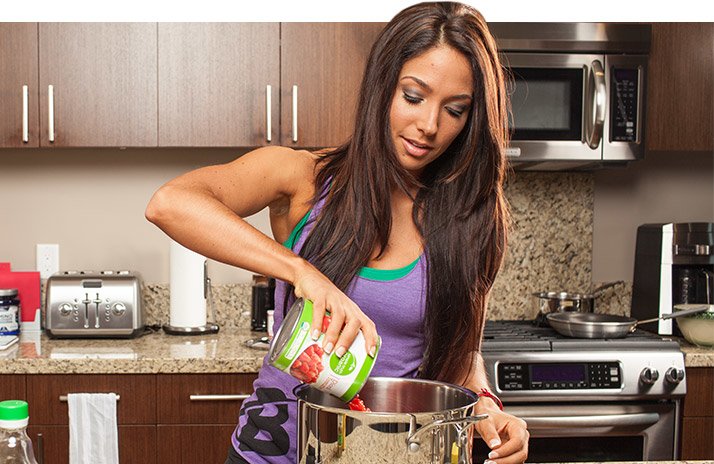
Be skeptical of "clean." Often, it will end up costing you more money and frustration with food preparation, and there is no guarantee that you will improve the nutrition content of your diet. But for most people, I can guarantee that overly principled, restrictive approach to eating will prove to be unsustainable.
On the other hand, if you stick to a reasonable approach for long enough and focus on the real villains—like added sugar and immense portion sizes—you'll be surprised at what you can achieve!
References
- Norton, L.E. & Wilson, G.J. (2008). Optimal protein intake to maximize muscle protein synthesis Examinations of optimal meal protein intake and frequency for athletes. AgroFood Industry Hi-tech, 20(2), 54-57.
- Norton, L.E., Layman, D.K., Bunpo, P., Anthony, T.G., Brana, D.V. & Garlick, P.J. (2009). The leucine content of a complete meal directs peak activation but not duration of skeletal muscle protein synthesis and Mammalian target of rapamycin signaling in rats. Journal of Nutrition, 139(6), 1103-1109.
- Wansink, B., Hanks, A. & Kaipainen, K. (2015). Slim By Design: Kitchen Counter Correlates of Obesity. Health Education and Behavior, doi: 10.1177/1090198115610571.

